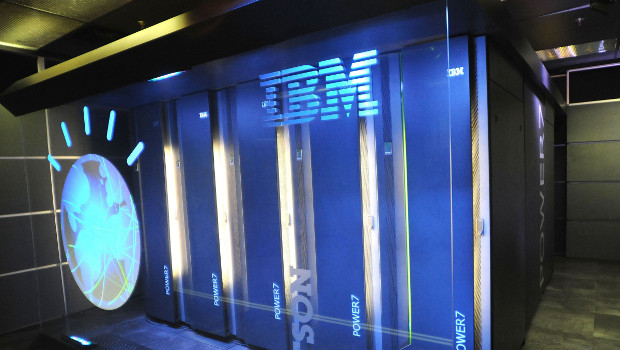IBM is using the powers of its Watson supercomputer service to help solve the mysteries of brain cancer by examining individual genetic mutations.
“When you do whole gene sequencing, you get a very complete picture of the mutations in a specific patient. It is critical to be able to translate that information into something an oncologist can understand and take actions around,” said Raminderpal Singh, IBM Research business development executive for genomic medicine.
In a research study, IBM Watson will help New York Genome Centre doctors by searching for their patients’ mutations that may be referenced in genomic databases and in medical literature. It then can present any findings of interest to the patient’s physician.
The patients being studied have glioblastoma, an aggressively malignant brain cancer that kills more than 13,000 people in the US alone each year.
An oncologist usually plans the best treatment plan for a specific patient by consulting medical literature, Singh said. This prototype will aid in that process, by providing links to medical papers of interest. “Watson is a knowledge-based learning system, so we can do that in an automated fashion,” Singh said.
Doctors will upload the gene sequence to the system, which runs on the IBM cloud. Watson will then scan mutation databases and medical literature for those types of mutations, connecting and highlighting any possibly relevant findings.
The software to do this analysis actually predates Watson. IBM Research’s Computational Biology Centre has been developing the software over the past decade. “Now is the time to turn the system on in an automated fashion and apply real patient information,” Singh said.
This is not the first time that IBM has focused Watson on brain cancer research. In 2012, the company started a partnership with Memorial Sloan-Kettering Cancer Centre in New York to develop a computer-based assistant for oncologists.
Though that work is still underway, IBM declined to discuss how it is progressing. However, insurance company WellPoint released commercial software related to work from that project, called Interactive Care Reviewer, which could be used by its doctors to aid in diagnosis.
IBM Research developed Watson to compete with human contestants on the “Jeopardy!” game show, using natural language processing and analytics, as well as many sources of structured and unstructured data.
The company has since moved to commercialise the technologies for specific industries, such as health care and customer service.
The company may still have some challenges remaining in adapting Watson to larger jobs, however.
In particular, the search technique of entity disambiguation and matching (EDM), which connects different descriptions of a single entity, may need some refinement.
EDM remains a “bottleneck” for question-and-answer medical software such as Watson’s, according to a presentation given by Chris Welty, one of the original IBM developers behind Watson, at National Science Foundation’s Ontology Summit 2014, held in Arlington, Virginia.
Watson’s major challenge with this work is matching a patient’s specific mutation to the correct journal articles describing that mutation.
“You will find over time that because of the complexity of the mutations, the medical research will provide more options that are specific to that patient,” Singh said.
Singh said that Watson, like any knowledge-based system, will learn over time and get better at providing relevant information. “As we work with partners, we will learn how the drug treatments have been applied and the outcome of patients,” Singh said. As a result, Watson “will continuously improve the accuracy” of its results, he predicted.
Singh predicted that Watson will learn this information quickly. “We’re very much hoping to scale the use of this [to commercial use] over a period of months rather than years,” Singh said.
The New York Genome Centre is a non-profit biomedical research and clinical care facility funded by a consortium of medical and academic facilities, including the Memorial Sloan-Kettering Cancer Centre, New York University and The Rockefeller University.
Joab Jackson, IDG News Service








Subscribers 0
Fans 0
Followers 0
Followers